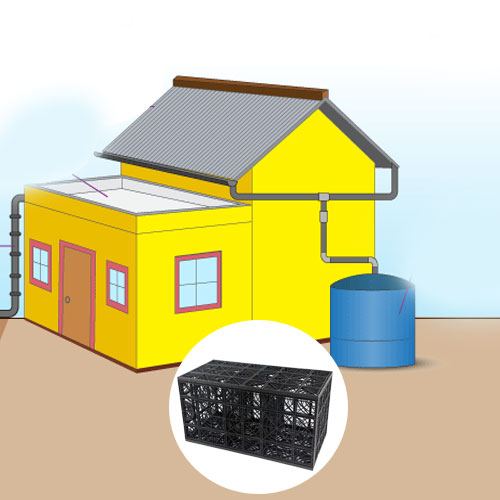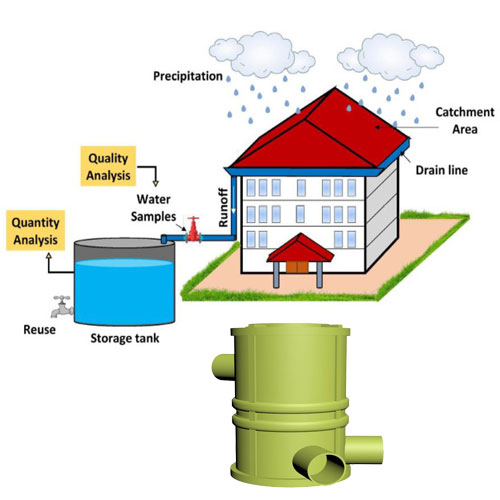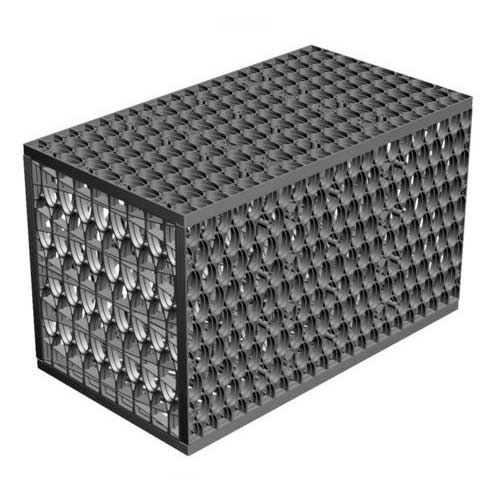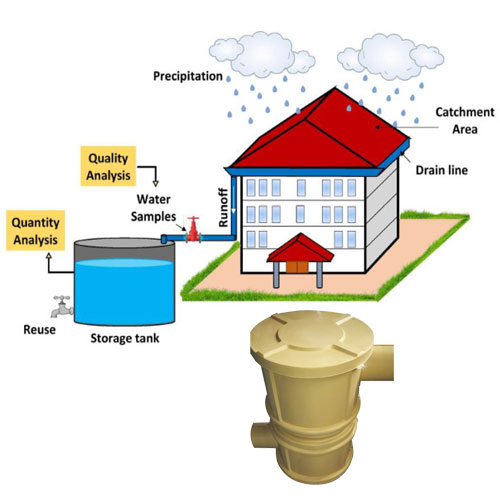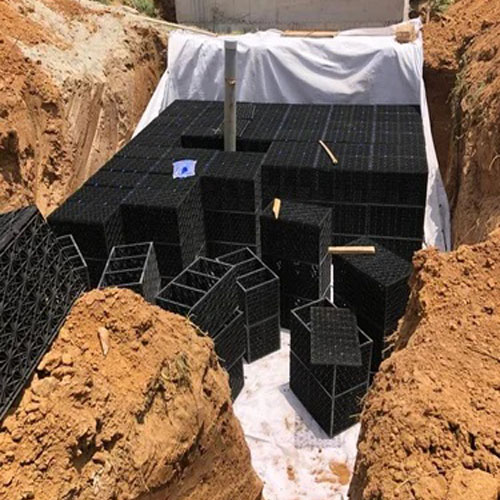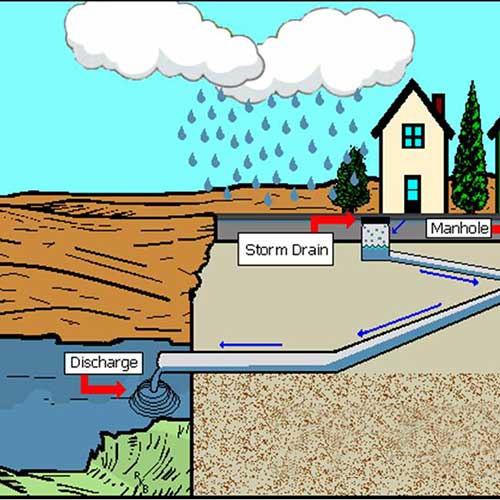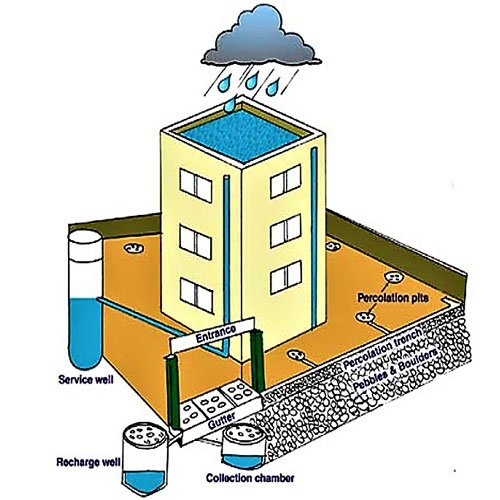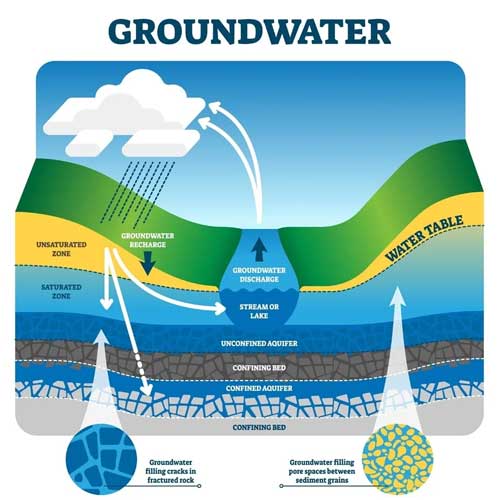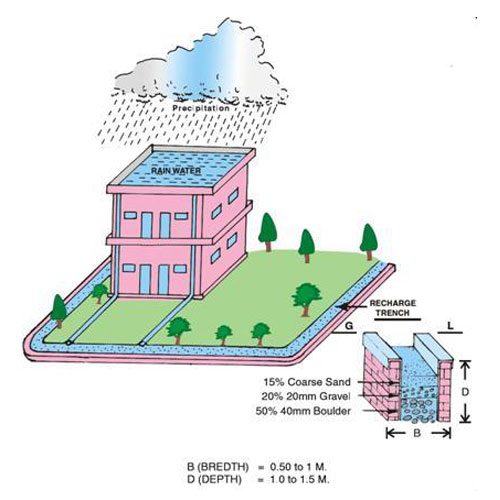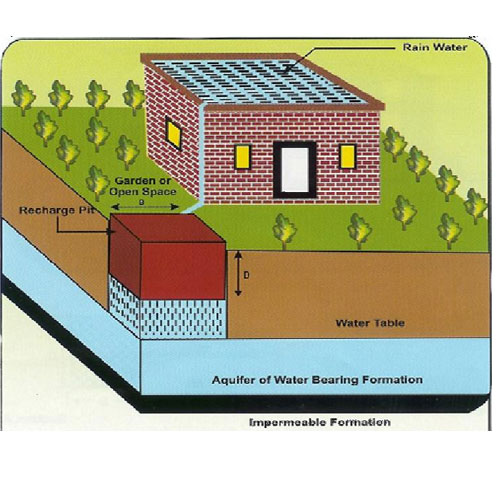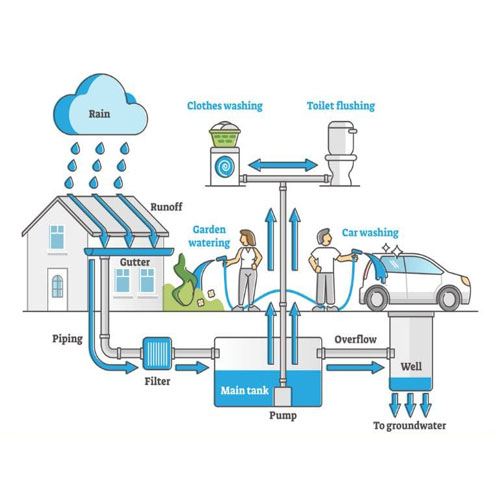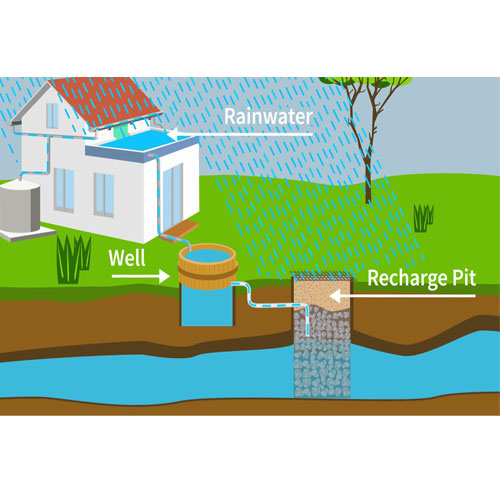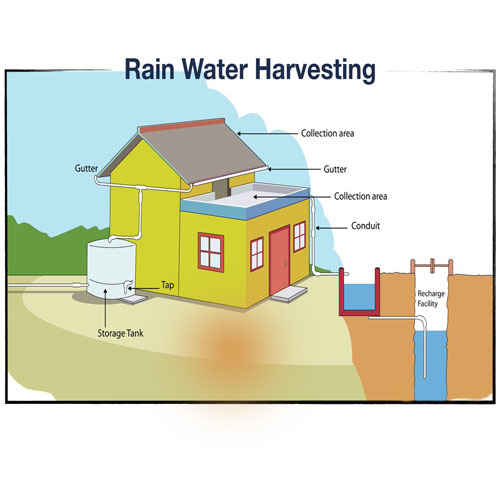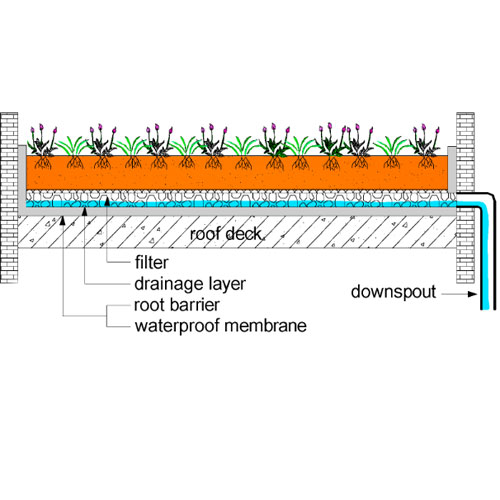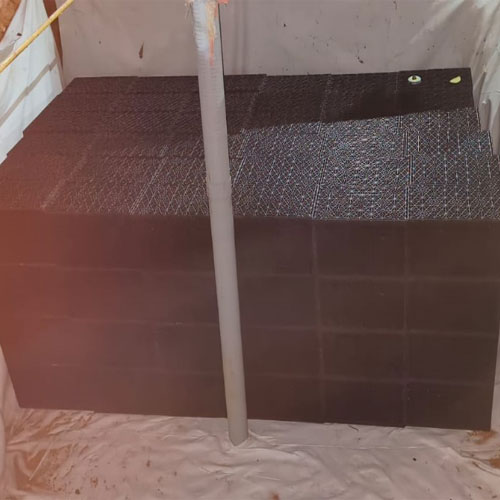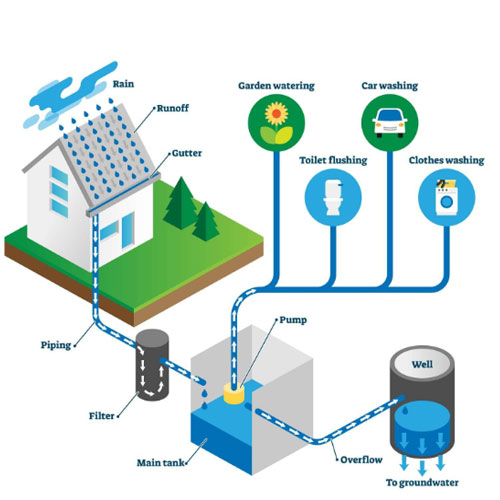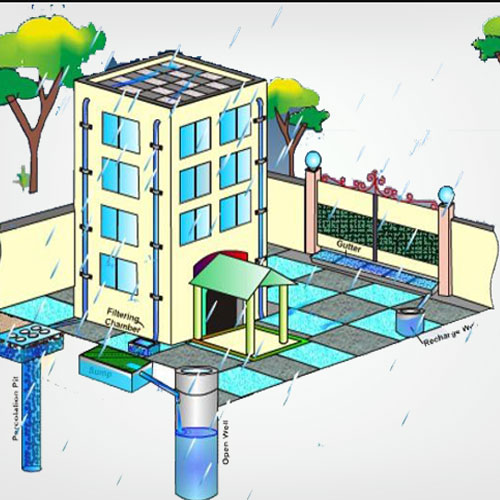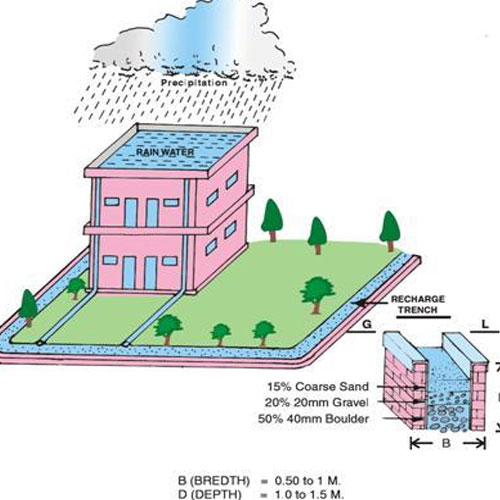Rainwater harvesting System is a smart and eco-friendly way to tackle water scarcity while encouraging sustainable water management practices. In India, where water demand is constantly growing, a rainwater harvesting system has become a vital step in ensuring water security. We provide comprehensive water harvesting System tailored to the unique needs of homes, businesses, and industries across the country.
What is a Rainwater Harvesting System?
Rainwater harvesting System is the process of collecting and storing rainwater for future use. Instead of letting rainwater flow away as runoff, this system captures it from rooftops or other surfaces and stores it for later purposes. The collected water can be used for gardening, domestic tasks, irrigation, groundwater recharge, and even industrial needs.
Types of Rainwater Harvesting Systems
Rainwater harvesting is the practice of collecting and storing rainwater for later use. It plays a crucial role in managing water resources efficiently, especially in regions facing water scarcity. Different types of rainwater harvesting systems are designed to suit various needs, from individual homes to large agricultural lands.
Surface Runoff Harvesting
Surface runoff harvesting involves capturing rainwater that flows over the land before it is lost as surface flow. The collected water can be directed into storage structures or allowed to infiltrate the ground, replenishing groundwater levels.
Rooftop Rainwater Harvesting
Rooftop Rainwater Harvesting System :Unlocking the Potential of Indian Hydrological Construction India, with its diverse climate patterns and growing population, faces significant challenges in water management. To tackle the increasing water scarcity, rooftop rainwater harvesting has emerged as a sustainable and effective solution that aligns with the principles of Indian hydrological construction. This innovative approach to water conservation harnesses the power of rainwater by capturing and utilizing it for various purposes.
Modular Rainwater Harvesting Systems
Water scarcity is a global issue that demands innovative solutions to ensure the sustainable management of this precious resource. In recent years, modular rainwater harvesting system technology has emerged as a groundbreaking approach to tackle water scarcity and promote efficient water management practices. This technology combines the principles of modularity, efficiency, and adaptability to revolutionize the way we collect, store, and utilize rainwater. In this article, we will explore the concept of modular rainwater harvesting technology and its transformative impact on water management.
Advantages of Installing a Rainwater Harvesting System
-
Reduces Water Bills: Collecting and using rainwater for non-drinking purposes like gardening, flushing toilets, and washing vehicles significantly lowers your water expenses.
-
Conserves Groundwater Resources: By relying on rainwater, you decrease the pressure on groundwater supplies, helping to prevent over-extraction and depletion.
-
Promotes Sustainable Water Management: Harvesting rainwater encourages eco-friendly water usage practices and supports long-term water sustainability.
-
Decreases Soil Erosion and Flooding: Capturing rainwater reduces surface runoff, minimizing soil erosion and the risk of localized flooding during heavy rains.
-
Provides an Independent Water Supply: A rainwater harvesting system offers a backup water source during water restrictions, droughts, or supply interruptions.
-
Improves Plant Growth: Rainwater is naturally soft and free from chemicals like chlorine and fluoride, making it better for plant health compared to treated tap water.
-
Reduces Demand on Public Water Supply: Less reliance on municipal water systems helps communities manage water resources more effectively, especially during peak usage periods.
-
Supports Eco-Friendly Building Certifications: Homes and buildings with rainwater harvesting systems can earn points toward certifications like LEED (Leadership in Energy and Environmental Design).
-
Easy to Maintain: Most rainwater harvesting systems require minimal maintenance, especially if they are well-designed and properly installed.
-
Cost-Effective in the Long Term: Although installation requires an initial investment, the savings on water bills and the benefits of water security make it financially worthwhile over time.
-
Reduces Energy Usage: Treating and pumping municipal water uses a significant amount of energy. Using harvested rainwater reduces the energy footprint associated with water supply.
-
Enhances Property Value: A sustainable feature like a rainwater harvesting system can make a property more attractive to environmentally conscious buyers.
-
Helps in Urban Heat Island Reduction: Managing rainwater properly can contribute to cooling urban environments by increasing green spaces and reducing heat-absorbing surfaces.
-
Flexible Design Options: Rainwater harvesting systems can be scaled to fit residential homes, farms, commercial properties, and industrial facilities.
-
Promotes Awareness of Water Conservation: Having a system in place makes homeowners and communities more mindful about water usage and environmental responsibility.
Importance of Rainwater Harvesting
-
Saves Water for the Future: Rainwater harvesting helps save water today so we have enough for tomorrow.
-
Reduces Water Bills: Using free rainwater for daily activities means you pay less for water.
-
Protects the Environment: Collecting rainwater helps reduce pressure on rivers, lakes, and underground water.
-
Prevents Flooding: By storing rainwater, we can stop extra water from flooding streets and homes.
-
Supports Farming and Gardening: Rainwater is great for watering crops, gardens, and trees, helping plants grow better.
-
Provides Backup During Shortages: If there’s a drought or water supply cut, stored rainwater can be a lifesaver.
-
Promotes Self-Sufficiency: Rainwater harvesting lets people depend less on city water systems.
-
Improves Groundwater Levels: Letting rainwater soak into the ground helps refill underground water reserves.
-
Reduces Energy Use: Using rainwater cuts down on the energy needed to pump and treat city water.
-
Encourages Water Awareness: It reminds everyone to use water wisely and not waste this valuable resource.
Why Choose Us for Your Rainwater Harvesting Needs?
We are dedicated to providing efficient and customized Rainwater Harvesting Systems in Delhi. Here’s why we’re trusted:
-
Expert Team: Our experienced professionals design and install reliable systems.
-
Customized Solutions: We tailor every system to your specific needs.
-
High-Quality Materials: Durable, efficient materials ensure long-lasting systems.
-
Regulatory Compliance: Our designs meet all local guidelines and standards.
-
Ongoing Support: We offer maintenance services to keep your system running smoothly
Applications of Rainwater Harvesting
Homes: Provides water for household tasks, gardening, and toilets.
-
Commercial Buildings: Reduces water bills and promotes sustainability.
-
Farms: Ensures a steady water supply for crops.
-
Industries: Supports water-intensive operations.
-
Schools and Colleges: Teaches sustainability while saving water.
The Role of Modular Technology in Rainwater Harvesting
Modular Rainwater Harvesting Systems are a game-changer in water management. These systems are built using prefabricated, easy-to-assemble components that make them flexible and efficient for various applications.
Why Modular Systems Stand Out
-
Scalability: Adaptable for small homes or large complexes, and expandable to meet future needs.
-
Flexibility: Suitable for irrigation, toilets, laundry, and even drinking water (with proper treatment).
-
Efficiency: Designed to optimize water collection and minimize waste.
-
Quick Installation: Prefabricated parts reduce setup time and cost.
-
Eco-Friendly: Lowers reliance on traditional water sources and cuts energy consumption.
Where Modular Systems Can Be Used
-
Homes and Offices: To meet daily water needs while saving space.
-
Farms: For irrigation and livestock.
-
Factories: To support sustainable production processes.
Conclusion
Rainwater harvesting System is a smart and important way to save water, protect the environment, and reduce water bills. It helps manage rainwater wisely, prevents flooding, and provides a backup water source during dry times. Whether for homes, farms, or cities, collecting rainwater supports a healthier planet and ensures that future generations will have enough water. By setting up a rainwater harvesting system, we take a big step toward building a more sustainable and water-secure future.
